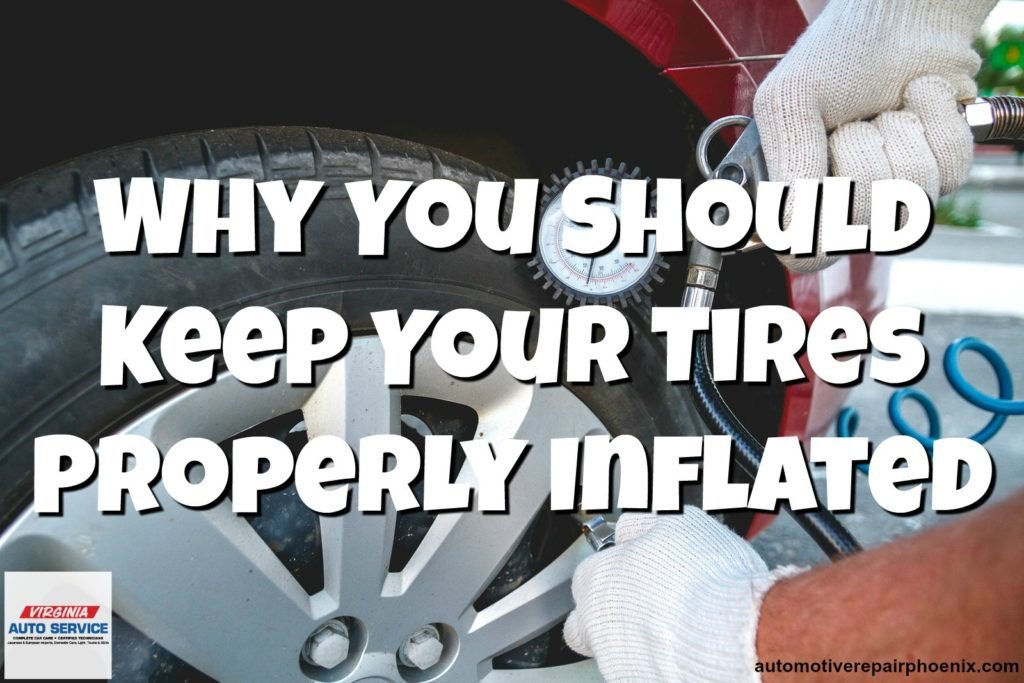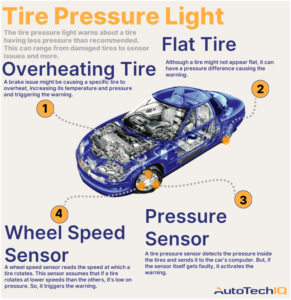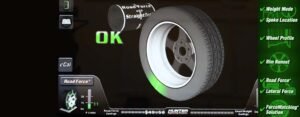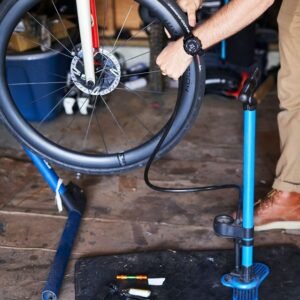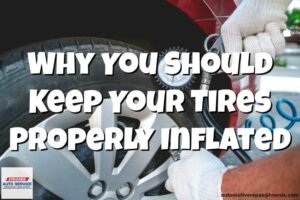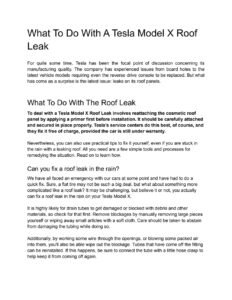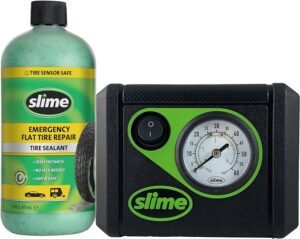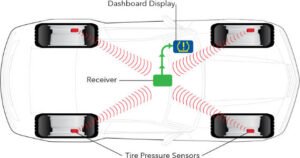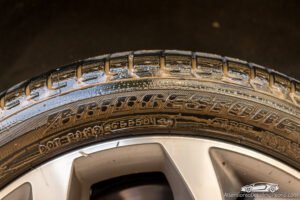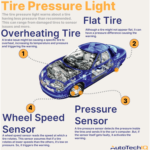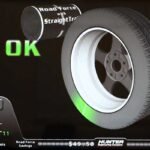Monitoring tire pressure enhances safety and optimizes fuel efficiency. Properly inflated tires wear more evenly, prolonging their life.
Ensuring your vehicle’s tires have the correct pressure is a critical aspect of car maintenance. It not only helps you save on gas by reducing rolling resistance but also safeguards against tire blowouts, which can lead to serious accidents. Regular tire pressure checks contribute to better handling and braking, making your driving experience safer and more enjoyable.
Keeping tires at the right pressure can also extend their usability, which translates to fewer replacements and lower overall costs. Tire pressure monitoring is a straightforward way to keep your vehicle running smoothly and efficiently, promising peace of mind on every journey. It’s a simple yet effective practice that benefits both your wallet and your well-being on the road.
The Importance Of Tire Pressure
The Importance of Tire Pressure cannot be understated when it comes to driving. Correct tire pressure keeps you safe, saves money, and enhances the way your vehicle drives. Let’s delve into why maintaining the right tire pressure is vital for your vehicle.
Safety On The Road
Keeping your tires properly inflated is crucial for safety. Below are key points that highlight this:
- Reduced Blowout Risk: Correct pressure prevents tire stress, overheating, and blowouts.
- Better Traction: Proper inflation ensures optimal contact with the road, providing good grip.
- Stable Handling: A vehicle with well-pressured tires handles predictably, crucial for avoiding accidents.
- Shorter Stopping Distances: Accurate tire pressure allows for effective braking, resulting in shorter stopping distances.
Maximizing Vehicle Performance
Well-maintained tire pressure offers several performance benefits:
- Improved Fuel Efficiency: Tires at the right pressure roll with less resistance, using less fuel.
- Even Tire Wear: Equal pressure distribution minimizes uneven wear, extending tire life.
- Fine-Tuned Driving Experience: Correct pressure contributes to a smoother and more comfortable drive.
- Decreased Carbon Footprint: Lower rolling resistance leads to reduced emissions, benefitting the environment.
Saving Money With Proper Tire Inflation
Driving with the right tire pressure saves cash. Many don’t notice that tires link closely to their wallets. Let’s learn how.
Reduced Tire Wear
Properly inflated tires last longer. Over or under-inflated tires wear out faster. They can also cost more over time. By keeping them at the correct pressure, tires won’t need changing as often.
- Even wear: This means your tires stay in shape longer.
- Increased lifespan: Save money by buying new tires less often.
Better Fuel Efficiency
A car with the right tire pressure uses fuel better. Under-inflated tires can increase fuel consumption. This means more trips to the pump.
| Tire Pressure | Fuel Efficiency |
|---|---|
| Correct | Best |
| Low | Worse |
| High | Unsafe |
- Check tire pressure monthly.
- Adjust as needed.
- Enjoy lower fuel costs!
Tire Pressure And Accident Prevention
Keeping tires properly inflated enhances safety on the road. Right tire pressure reduces accident risks significantly. Let’s explore how monitoring tire pressure plays a crucial role in preventing accidents.
Avoiding Blowouts
Proper inflation prevents tire blowouts, a major cause of accidents. A blowout can lead to loss of vehicle control. Regular checks maintain tire integrity and stability. Below are key advantages:
- Strengthens tire walls, reducing the chance of failure.
- Prolongs tire life, offering long-term reliability.
- Supports vehicle weight evenly to dodge sudden blowouts.
Improved Handling And Braking
Correct tire pressure guarantees better handling and braking. It ensures a secure grip and optimal vehicle performance. Here’s how it helps:
- Enhances traction, allowing firm road contact.
- Ensures accurate steering for obstacle avoidance.
- Reduces stopping distance, crucial in emergencies.

Credit: nap.nationalacademies.org
Environmental Benefits Of Tire Monitoring
The quest for a greener planet guides us toward various innovative practices. Tire pressure monitoring shines amidst these, with surprising environmental advantages. As tires roll, they don’t just touch the road; they leave an imprint on our environment too. Let’s tread into the realm where proper tire inflation intersects with ecological benefits.
Lower Carbon Footprint
Greenhouse gas emissions are a glaring issue in the transportation sector. Maintaining optimal tire pressure is a simple yet effective method to tackle this. Here’s why:
- Enhanced fuel efficiency: Properly inflated tires require less energy to move, which means your vehicle consumes less fuel.
- Fewer emissions: With reduced fuel consumption comes a corresponding drop in CO2 emissions, lightening the load on our atmosphere.
Reducing Rubber Waste
Rubber waste from tires is another environmental concern. Discover how keeping a check on tire pressure can help curb it:
- Extended tire life: Tires maintained at the correct pressure wear evenly and last longer, cutting down on waste.
- Reduced debris: Underinflated tires can lead to blowouts, contributing to rubber debris on roadways and in natural habitats.
Advanced Tire Pressure Monitoring Systems (tpms)
The journey to safe and efficient driving takes a crucial turn with Advanced Tire Pressure Monitoring Systems, or TPMS. These intelligent systems provide real-time insights into the health of your tires, which is paramount for performance and safety. Here’s how TPMS is transforming modern driving experiences:
How Tpms Works
- TPMS sensors are installed in each tire.
- They measure pressure constantly.
- The data is sent to the vehicle’s computer.
- Drivers receive an alert when pressure drops.
This immediate feedback helps prevent tire damage and maintain optimal vehicle handling.
The Role Of Tpms In Modern Vehicles
TPMS is now an indispensable feature in new cars. Its benefits span across various aspects:
| Benefits of TPMS | Impact |
|---|---|
| Safety | Reduced risk of tire failure |
| Fuel Economy | Improved by maintaining correct pressure |
| Lifespan of Tires | Increased through optimal pressure |
| Environment | Less CO2 emissions with proper inflation |
Leveraging TPMS leads to a harmonious balance of durability, efficiency, and eco-friendliness.

Credit: www.tirereview.com
Diy Vs. Professional Tire Pressure Management
Maintaining the right tire pressure is crucial for your vehicle’s performance and safety. The question often arises; should you check the tire pressure yourself, or should a professional do it? Understanding the pros and cons of each approach can help you make an informed decision.
Tips For Manual Checks
Checking tire pressure yourself is straightforward if you know what you’re doing. A good quality tire pressure gauge and a few minutes are all you need. Follow these tips to ensure accurate results:
- Check when tires are cold, ideally in the morning before you have driven or at least three hours after driving.
- Use your manual or the sticker on your car door to find the correct pressure for your tires.
- Remove the cap from the tire’s valve stem and press the tire gauge firmly onto it. If you hear a hissing sound, adjust the angle.
- Fill to the recommended level and recheck. If overfilled, release air and check again.
- Replace the valve cap to prevent dirt from getting into the stem.
- Repeat monthly or before long trips or carrying extra load.
Benefits Of Expert Services
Professional services might be more suitable for those seeking convenience and precision. Here are some advantages:
| Advantage | Description |
|---|---|
| Expertise | Technicians are trained to identify issues beyond just low pressure. |
| Advanced Equipment | Professionals use high-grade tools that may deliver more accurate readings. |
| Time-Saving | They take care of the checks while you wait or handle other tasks. |
| Additional Checks | They often include tire balancing and rotation in their service. |
When To Check Your Tire Pressure
Keeping an eye on tire pressure is crucial for vehicle safety and efficiency. Properly inflated tires wear evenly, save fuel, and ensure the best handling.
Regular Maintenance Schedule
Plan regular checks to stay ahead. Typically, once a month is recommended. Mark it on your calendar or set a reminder. Changing seasons often affect tire pressure. A drop in temperature can decrease tire pressure. Conversely, a rise in temperature can increase it.
- Cold weather: Check more often
- Hot weather: Pressure might increase
Tire inspections should include spare tires as well. They also lose pressure over time.
Before Long Trips
Prepare for safe travels. Always check your tire pressure before you set out on a long drive. Tires must handle additional load and long-distance stress.
- Increased load: More pressure may be needed
- Long distances: Tires heat up, affecting pressure
Correct tire pressure ensures safety and minimizes the risk of tire damage.
All tire-related decisions should align with the vehicle’s manual or tire information placard.
Common Misconceptions About Tire Pressure
Tire pressure shapes your car’s performance and safety. Yet, many drivers hold false beliefs about it. Let’s clear some of these misconceptions.
Myths Debunked
Myth 1: “You can tell if a tire is inflated just by looking at it.” This isn’t true. Tires can look fine but be underinflated. Use a gauge to check.
Myth 2: “Tire pressure doesn’t affect fuel efficiency.” Wrong again. Proper inflation improves gas mileage. Low pressure means more fuel use.
Myth 3: “Overinflation causes blowouts.” It’s not the sole cause. But, keep to the recommended pressure to avoid unnecessary risk.
Realities Of Tire Maintenance
Understanding tire pressure is key. Here are truths every driver should know:
- Check monthly: Tires lose pressure over time. A monthly check keeps them in shape.
- Weather matters: Temperature changes affect pressure. Check more often in extreme weather.
- Use the right tool: A reliable gauge gives accurate readings. Guesswork won’t work.
Care for your tires and they’ll repay you with a smoother, safer drive and better fuel economy. It’s that simple.

Credit: m.facebook.com
Frequently Asked Questions For What Are The Advantages Of Monitoring Tire Pressure
What Are The Benefits Of Tire Pressure Monitoring System?
A tire pressure monitoring system (TPMS) enhances safety by alerting you to under-inflated tires, improves fuel efficiency, and extends tire lifespan. It also reduces brake distance and lowers the risk of tire blowouts.
Are Tire Pressure Monitoring Systems Worth It?
Yes, tire pressure monitoring systems are worth it. They enhance safety by alerting you to low tire pressure, potentially preventing accidents. These systems also help maintain fuel efficiency and prolong tire life.
Why Must You Monitor Your Tire Pressure?
Monitoring tire pressure is essential for ensuring safety, optimizing fuel efficiency, and extending tire life. Properly inflated tires reduce the risk of blowouts and improve vehicle handling.
What Are The Cons Of Tpms?
TPMS sensors can be costly to replace and may malfunction due to battery life or damage. They can sometimes provide false alerts, leading to unnecessary service checks. Calibration may be required after tire rotation or replacement, adding maintenance complexity.
Conclusion
Regular tire pressure checks are essential. They protect against accidents, enhance fuel economy, and prolong tire life. Prioritizing tire health translates to driving confidence and operational savings. Embrace this straightforward practice for a smoother, safer journey and noticeable long-term benefits.
Don’t overlook your tires; they’re foundational to vehicle performance.


